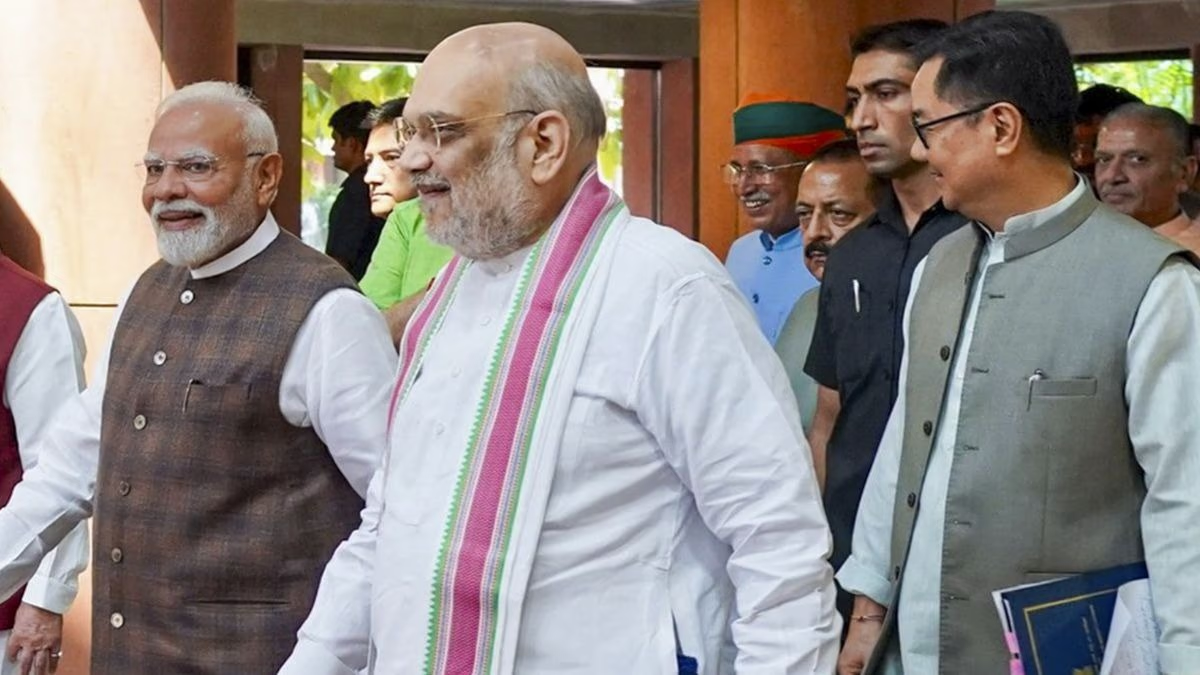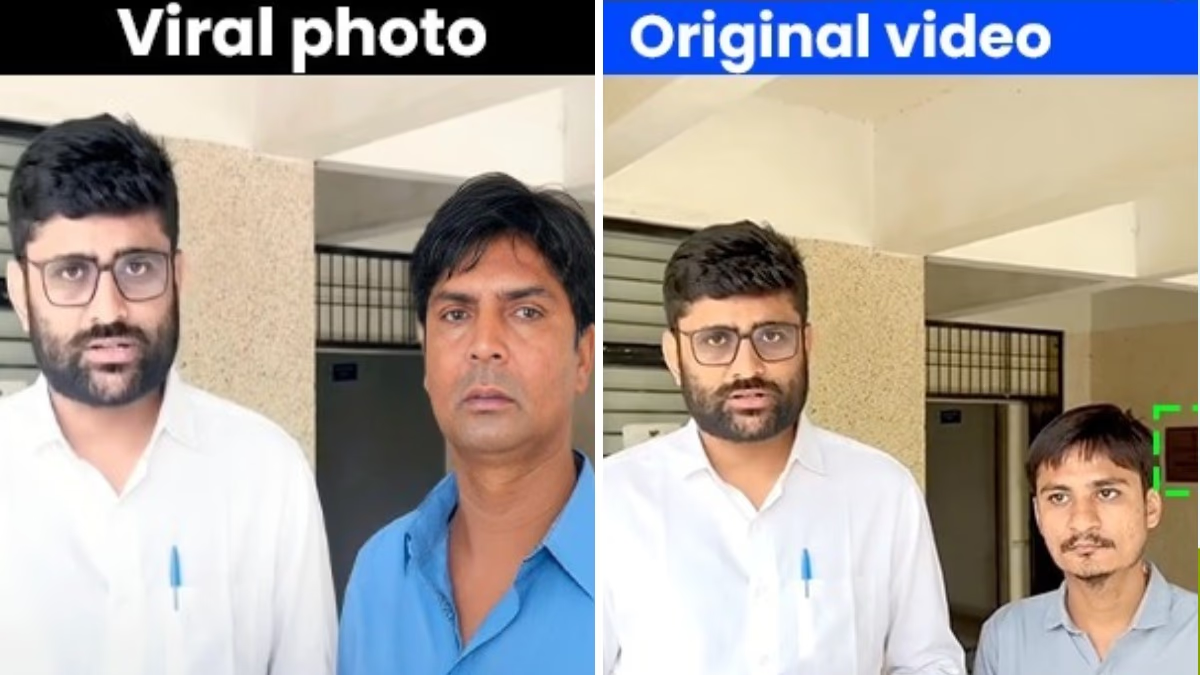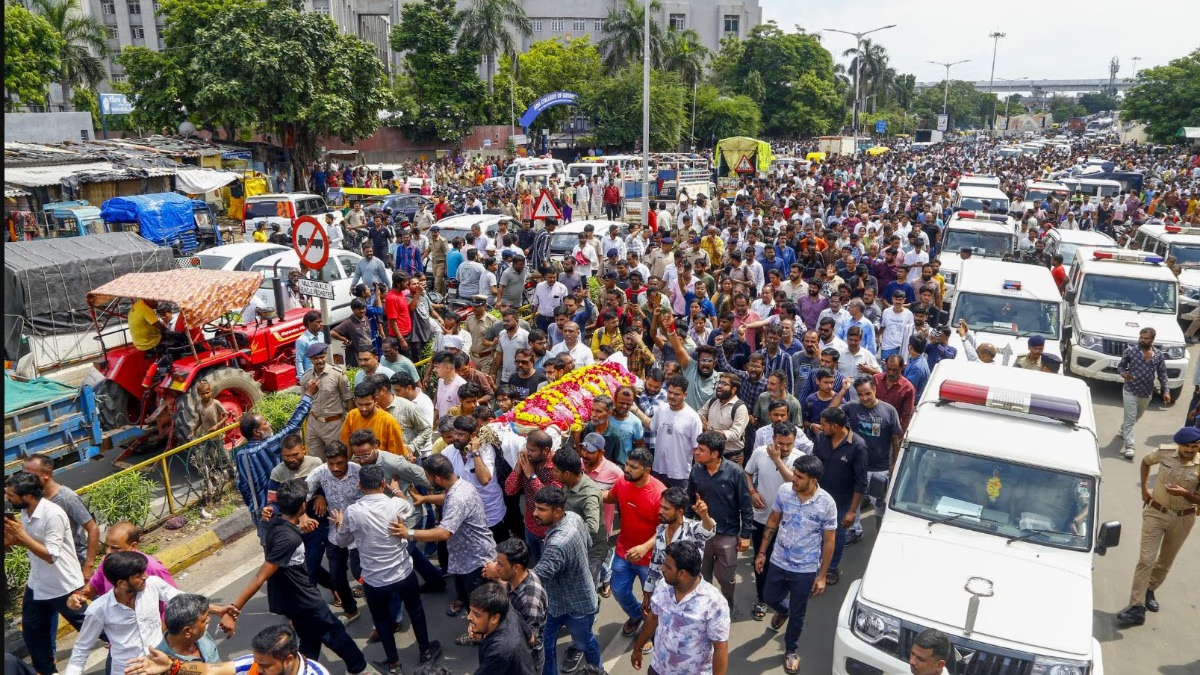The central government has unveiled a new bill that mandates the removal of any Prime Minister, Chief Minister, or minister who remains jailed on serious charges for over 30 days. This move evokes memories of the Jan Lokpal movement led by Anna Hazare. The irony lies in the fact that Arvind Kejriwal, once a prominent figure behind the movement, later distanced himself. As Delhi's CM, he found himself in Tihar Jail on corruption charges.
This law aims to encompass Prime Ministers, Union Ministers, and Chief Ministers, akin to the initial proposals of the Jan Lokpal Bill, which sought to bring even the highest offices under scrutiny. Though a Lokpal was established, certain aspects were not included.
Under the proposed measures, if an individual is held for a month on grave charges, they will be disqualified from their position. On the 31st day of such detention, automatic removal is enacted.
Why is there a need for this type of law?
Provisions in the New Law
Reports indicate that Home Minister Amit Shah has introduced proposals to send three bills to a joint committee of Parliament. These include the Union Territories (Amendment) Bill 2025, the Constitution (130th Amendment) Bill 2025, and the Jammu and Kashmir Reorganization (Amendment) Bill 2025.
1.
The Union Territories (Amendment) Bill, 2025 aims to address gaps where current laws lack provisions for removing a CM or minister detained on serious charges. Hence, section 45 will be amended to enforce stringent regulations.
2.
The Constitution (130th Amendment) Bill, 2025 aims similarly. It modifies articles 75, 164, and 239AA, to allow removal of PMs, central ministers, or CMs for offenses warranting imprisonment of five years or more if held for 30 continuous days.
3.
Similarly, the Jammu and Kashmir Reorganization (Amendment) Bill, 2025, amends section 54 and adds clause (4A) to remove a CM or minister detained under serious charges.
Should an accused not resign within 30 days of detention, the proposed law enforces removal on the 31st day. This applies to Union and state governments.
Need Amid Article 356?
While the central government can impose President's Rule in states under Article 356, past incidents have shown challenges, as seen in Arunachal Pradesh and Uttarakhand in 2016, where Supreme Court intervention reinstated governments.
Before the 2024 Lok Sabha elections, cases saw Jharkhand and Delhi's CMs jailed by the Enforcement Directorate. In Jharkhand, JMM leader Hemant Soren resigned before jail. In contrast, AAP's Arvind Kejriwal managed Delhi's government from Tihar Jail. Both leaders were released on bail, yet faced varied fates in public opinion.
While Soren secured his return post-victory, Kejriwal lost Delhi's elections, ceding power to BJP's Rekha Gupta.
Under the new law, no CM could govern from jail like Kejriwal. During the Delhi liquor policy case, legal barriers prevented any direct action against him.
Current law dictates if a politician receives a sentence of two years or more, their parliamentary membership automatically ends. This has occurred with several leaders, Rahul Gandhi included, although his sentence suspension allowed a return in the 2024 elections.
The True Agenda?
It's evident the bill's goal isn't solely punitive but also political. Stemming from recent political developments, its strategizing reflects deeper motives.
1.
There's a clear loophole in the proposed law; even if a CM is removed on the 31st day, the party remains. The ruling party's legislature could simply appoint a new leader as CM, somewhat achieving success with partial goals.
2.
Appointing a new CM might incite internal conflict, strain relations, or even fracture the party, partially achieving intended purposes.
3.
In Jharkhand, although Hemant Soren resigned prior to jail, his party faced internal discord. Returning, Champai Soren stepped down but left the party, benefiting political adversaries.
4.
In Delhi, Kejriwal's imprisonment didn't prevent resignations among his AAP members upon his release.
The BJP's proposed law appears as a tool for political counteraction, akin to past laws like TADA and POTA for terrorism. However, as those laws faded, questions loom over the efficacy of such political-focused laws.
Laws are crafted for punishing criminals, irrespective of backgrounds—be they hardened criminals or products of political collusion and corruption. With TADA and POTA proving redundant, the effectiveness of the current proposal remains in question, especially given enforcement actions already in place through ED arrests. The intentions behind such legal formats do not appear purely transparent.




